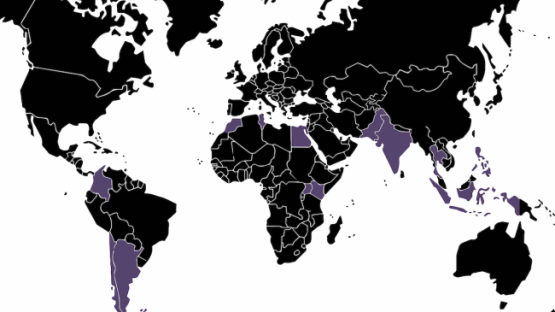Tracking the global state of surveillance

Today, Privacy International is publishing the result of a global effort to benchmark surveillance policies and practices in the countries that are part of the Privacy International Network. We’re calling it the ‘State of Surveillance’.
We designed a survey of questions based on some key issues: statistics about the communications infrastructure of the country; what civil society organisations and groups that analyse privacy issues; the international and domestic legal framework regulating communications surveillance as well as privacy, data protection and security issues; government policies on privacy issues; key government and industry actors; the surveillance technologies in place; and known cases of surveillance.
We then asked our researchers and network partners to dig up this information, which we have curated for you. The result is a concise and referenced profile of a variety of countries: Argentina, Brazil, Chile, Colombia, Egypt, India, Indonesia, Jordan, Kenya, Lebanon, Mexico, Morocco, Pakistan, Paraguay, the Philippines, South Africa, Thailand, and Uganda.
This was collaborative research with our partners and peer-reviewed by the Privacy International Network. who contributed material, analysis and nuance to their country’s profiles and cross-checked the briefings’ sources. We will be adding new profiles later this year — one each on South Africa and Mexico — and updating existing profiles.
This is your study
Comparing country briefings reveals a number of concerning trends. In the past two years the governments of many countries, including Pakistan and Kenya have rolled back privacy rights by imposing increasingly draconian security laws that widen the margins to carry out state surveillance with little if any oversight.
Governments are also monitoring open source social media platforms closely — in Morocco and Thailand, for instance, such evidence is being used to bring charges against activists and ordinary citizens accused of defaming their respective heads of state, and is further facilitating state repression of free speech.
Nevertheless — there are laws and regulations that can be used to promote privacy. Over half the countries reviewed (seven out of 13) have specific data protection laws; three countries had data protection bills pending at the time of writing (Kenya, Indonesia and Uganda). In the remaining three countries (Egypt, India and Pakistan), limited data protection provisions are spread across other laws.
While the development of laws and policies governing our data is usually slow, sometimes, there are major developments that appear to come out of nowhere. Who anticipated that the death of a prosecutor investigating financial impropriety in Argentina would lead the Government to reorganise the intelligence services? Or that a leaked draft of a highly repressive cybercrime bill would reveal the Pakistan government’s latchest attempt to extend surveillance powers, beyond what is legally mandated by the country’s constitution?
That is why the State of Surveillance has been designed as a living document, open to review and edits over time. Readers and users of this resource play a crucial role in enabling us to provide information which is correct, relevant and useful. So we encourage you to send us your feedback. To find out how to contribute please go to our note on the methodology. If your country is not yet listed, feel free to get in touch with us. Bit by bit, we will build a unique resource, increasing understanding of what powers governments have, in law and in practice, to surveil ordinary citizens around the world.



